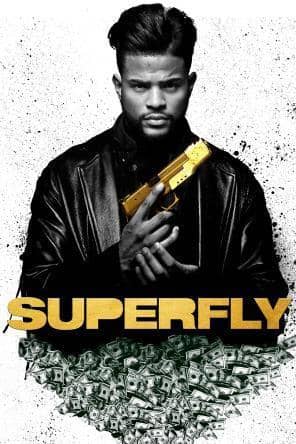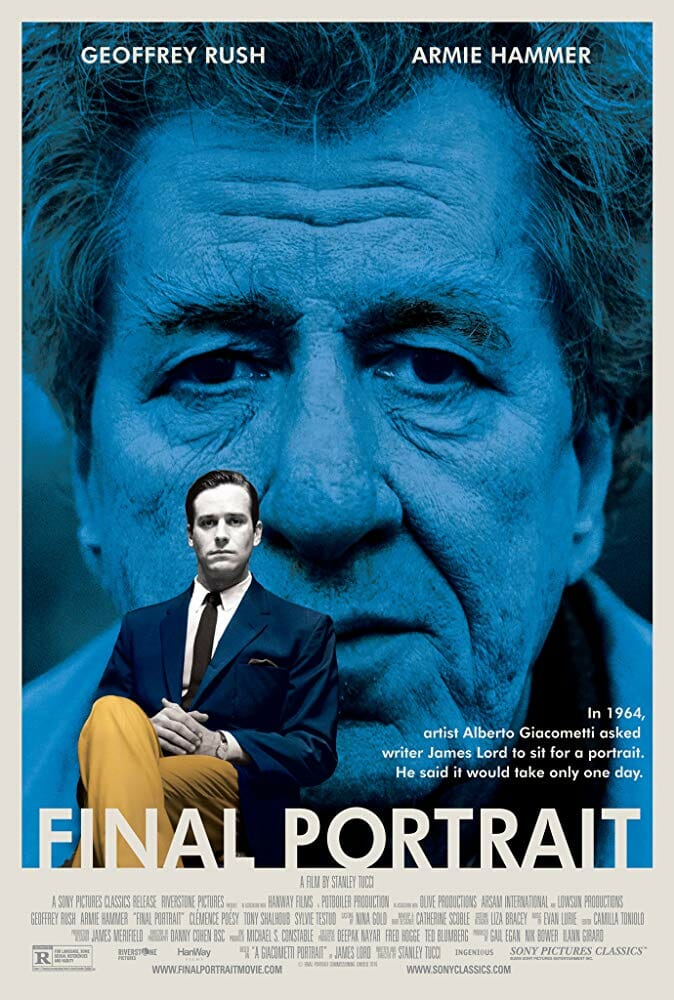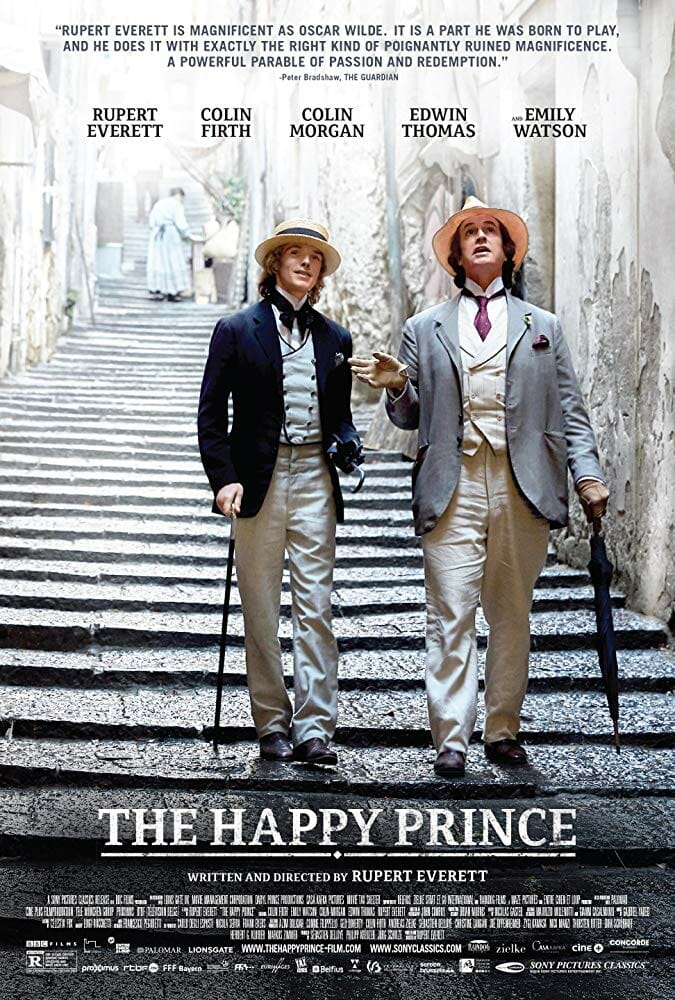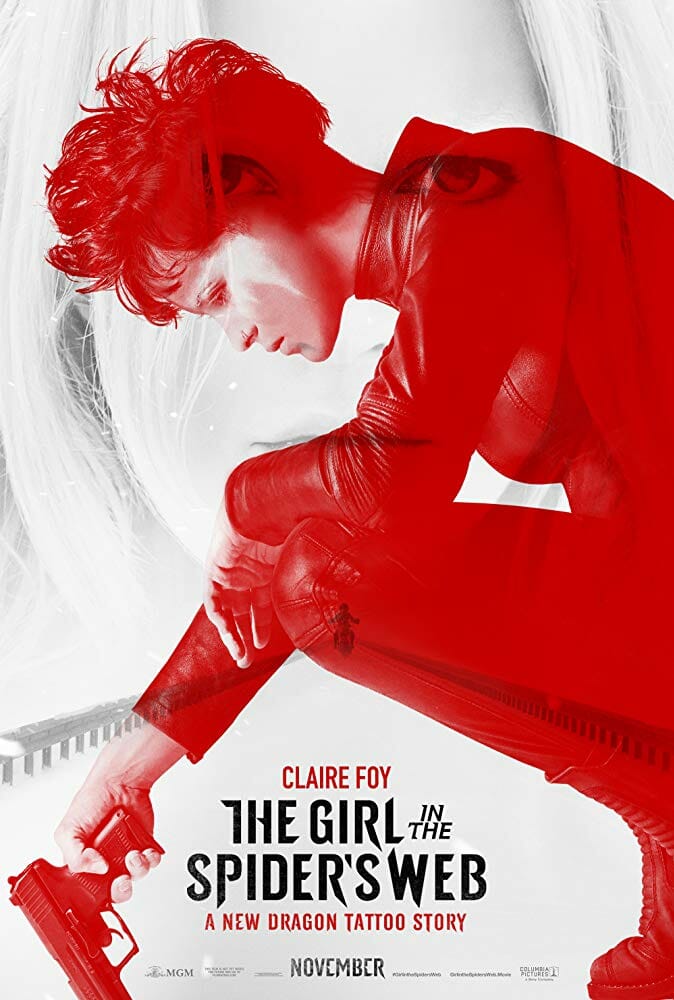Founded in 1918 as Cohn-Brant-Cohn Film Sales, the studio was renamed Columbia Pictures in 1924. The studio gained prominence starting in the ‘20s due to its association with Frank Capra and ended up producing some of the biggest stars of the classic Hollywood era. In the ‘80s, the studio was acquired by Coca-Cola, where the company launched Tri-Star pictures. Columbia/TriStar was briefly an entity, before being purchased by Sony in 1989.
Sony Pictures has a rocky track record when it comes to LGBTQ-inclusive films. A political thriller from 1962, Advise and Consent, included a subplot where a Senate chairman is blackmailed over an affair he had with another man, before committing suicide. Tri-Star’s Basic Instinct (1992) faced opposition from LGBTQ groups, including GLAAD, for its defamatory depiction of lesbian and bisexual women. Other inclusive films from Sony Columbia include Philadelphia (1993), Threesome (1994), and As Good as it Gets (1997). In more recent years, parent company Sony Pictures has released Rent (2005), The Girl With the Dragon Tattoo (2011), The Mortal Instruments: City of Bones (2013), and Rough Night (2017).
The Girl in the Spider’s Web
Vito Russo Test: Pass
Widest theatrical release: 2,929 theaters
Based on the best-selling novel of the same name, The Girl in the Spider’s Web is an action movie that follows vigilante Lisbeth Salandar as she is being hunted by her villainous sister who is trying to steal nuclear codes Lisbeth has acquired. Early on in the film, Lisbeth is freshly out of bed with Sofia, a woman whom it is clear she has a sexual and romantic relationship with. The two discuss Lisbeth’s family and Sofia’s jealousy when she believes that Lisbeth might be sleeping with other women. Sofia returns later in the film to help Lisbeth make her escape from a government agent who is hunting her. The film also delves further into Lisbeth’s past relationship with journalist, Mikael. Having a bisexual woman at the forefront of an action movie is an exciting step toward more inclusion in the genre, especially in leading roles. The film was nominated for a GLAAD Media Award in Outstanding Film – Wide Release.
Superfly
Passes Vito Russo Test
Widest theatrical release: 2,220 theaters
A remake of the 1972 Blaxploitation film of the same name, Superfly follows drug dealer Youngblood Priest in his attempt to leave behind his life of crime. In the original film, Priest had a girlfriend, Georgia, and a mistress, Cynthia. In the remake, this is changed to Priest, Georgia, and Cynthia in a polyamorous relationship, which is reciprocated on all sides. Georgia and Cynthia kiss and show affection to each other as well as to Priest. There is an extended sex scene in the middle of the film, and though it includes all three of the characters in the relationship, most of the screen time is devoted to each woman with Priest respectively. Though it is a good update to show Georgia and Cynthia as bisexual, the film still mostly conveys their relationship in terms of a male fantasy and how they relate to Priest. Furthermore, Cynthia is killed in a shootout toward the end of the film, and while Priest and Georgia are initially upset by this, the film ends with the two of them happy together on a boat, demonstrating that Cynthia’s character was ultimately disposable.
remake of the 1972 Blaxploitation film of the same name, Superfly follows drug dealer Youngblood Priest in his attempt to leave behind his life of crime. In the original film, Priest had a girlfriend, Georgia, and a mistress, Cynthia. In the remake, this is changed to Priest, Georgia, and Cynthia in a polyamorous relationship, which is reciprocated on all sides. Georgia and Cynthia kiss and show affection to each other as well as to Priest. There is an extended sex scene in the middle of the film, and though it includes all three of the characters in the relationship, most of the screen time is devoted to each woman with Priest respectively. Though it is a good update to show Georgia and Cynthia as bisexual, the film still mostly conveys their relationship in terms of a male fantasy and how they relate to Priest. Furthermore, Cynthia is killed in a shootout toward the end of the film, and while Priest and Georgia are initially upset by this, the film ends with the two of them happy together on a boat, demonstrating that Cynthia’s character was ultimately disposable.
OPPORTUNITIES AHEAD
Sony Pictures Worldwide has acquired the domestic and most of the international rights to upcoming British drama Ammonite, starring Kate Winslet and Saoirse Ronan as two women who fall in love. Ideally, Sony will give this film a wide release, as these LGBTQ-inclusive historical dramas are often limited to a smaller run. Bisexual pop star Halsey has signed on with Sony to make a semi-autobiographical film starring herself. The singer has long been outspoken about her sexual orientation, and the film would be incomplete without including her bisexuality. Spider-Man: Far from Home is set to release in July, and may possibly include characters from Peter Parker’s high school who are LGBTQ. Trans actor Zach Barack has been cast in a role in the film, though it is unknown if his character will be transgender or not. GLAAD’s Accelerating Acceptance report finds that 20 percent of Americans aged 18-34 identify as LGBTQ – if Peter’s school peers are meant to reflect reality, the movie must include LGBTQ students. TriStar, under Sony, picked up romantic comedy Happiest Season, co-written and directed by out filmmaker and actress Clea DuVall. The film follows a woman who is planning on proposing to her girlfriend, but finds out the girlfriend is not out to her family. Hopefully, this and hits like Love, Simon will lead to more romantic comedies revolving around LGBTQ couples.
Founded in 1992, Sony Pictures Classics (SPC) is the independent arm of Sony Pictures Entertainment, which acquires, produces, and distributes independent films and documentaries. Among the many inclusive films SPC has released since its inception are My Life in Pink (1997) about a gender non-conforming child; The Celluloid Closet (1995), a documentary about LGBTQ representations in film based on the book with the same title written by Vito Russo (co-founder of GLAAD); the Alan Ginsberg-centered story Kill Your Darlings (2013); Pedro Almodovar’s I’m So Excited! (2013); Love Is Strange (2014); Grandma (2015); The Meddler (2016); Call Me By Your Name, A Fantastic Woman (2017), and more.
Final Portrait
Widest theatrical release: 100 theaters
 Based on true events, Final Portrait tells the story of painter Alberto Giacometti painting a portrait of American critic James Lord. Lord, who was gay in real life, is also portrayed as such in the movie, though not much on-screen. He has phone conversations with a man who seems to be his partner or boyfriend. In one scene he jokes about how a woman would have excited him, if only she were a man, while implying the man next to him is his date. Though it is positive to see a gay man living fairly openly in the 1960s, it would have been great to see Lord talk about his personal life more in the real substance of the film, which are his conversations with Giacometti.
Based on true events, Final Portrait tells the story of painter Alberto Giacometti painting a portrait of American critic James Lord. Lord, who was gay in real life, is also portrayed as such in the movie, though not much on-screen. He has phone conversations with a man who seems to be his partner or boyfriend. In one scene he jokes about how a woman would have excited him, if only she were a man, while implying the man next to him is his date. Though it is positive to see a gay man living fairly openly in the 1960s, it would have been great to see Lord talk about his personal life more in the real substance of the film, which are his conversations with Giacometti.
The Happy Prince
Widest theatrical release: 227 theaters

A biopic that follows the last few years of Oscar Wilde’s life, The Happy Prince takes a look at the esteemed gay playwright after his imprisonment for “gross indecency.” The film follows Wilde as he is taken in by his good friends Reggie and Robbie and his continuing toxic relationship with Bosie, his much younger lover who was partially responsible for Wilde’s imprisonment. During this time, they lived with a bacchanal of younger men, many of whom Bosie was paying to be intimate with and remain with the men. When Bosie’s family cut off his allowance, Wilde lived on and off the streets of France, until his death, with Reggie at his side. The postscript of the film notes how Wilde’s work was immortalized, while Bosie died penniless. His memorialization doesn’t necessarily change the tragedy of Wilde’s life, which the film portrays with a mostly even hand, though sometimes seems to revel in his decline and ill state.













